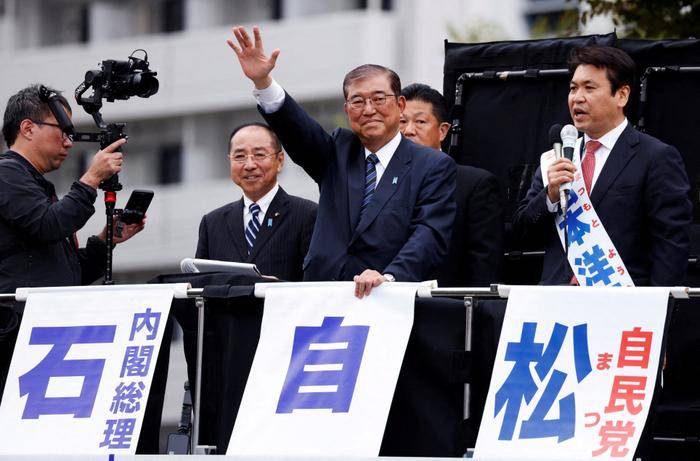Japan's New Prime Minister Ishiba Shigeru Faces Uncertainty in Election, with Leadership on Shaky Ground
The recent election in Japan has been marked by uncertainty, with new Prime Minister Ishiba Shigeru's leadership hanging in the balance. Ishiba's slim margin of victory over conservative favourite Takaichi Sanae in the second round of intra-party voting demonstrates that the LDP is still negotiating internally what kind of party it wishes to be after the death of former prime minister Abe Shinzo ¹.
This introspection includes what ideologies inform the basis of its governing and national philosophy, economic policies, and what degree of securitization of foreign policy the members are willing to accept. Ishiba's lack of conservative appointments in his cabinet further suggests that he is serious about transforming the LDP's ideological inclination.
However, Ishiba's leadership is precarious, and he faces significant challenges both domestically and internationally. On the domestic front, policy continuity is likely in the Ishiba administration, with a focus on economic security and resilience initiatives. However, Ishiba's past record as a party outsider suggests that he may not be able to accrue support within the party for consequential economic reform to deal with Japan's many economic and social problems ¹.
In terms of foreign policy, Ishiba's proposal for an Asian NATO has been met with skepticism from Washington, and over-securitizing Japan-China relations has limitations. However, Ishiba may find other room to manoeuvre in the foreign policy domain, such as investing in existing partnerships like the Japan-U.S. alliance and expanding CPTPP membership ¹.
Ultimately, the challenge for Ishiba is that while he may be a new face, he has, at best, only a marginal base of support within the LDP. Without a broader base, he will find it difficult to formulate and implement policies, especially against the backdrop of intra-party opposition from more conservative politicians
In terms of foreign policy, Ishiba's proposal for an Asian NATO has been met with skepticism from Washington, and over-securitizing Japan-China relations has limitations. However, Ishiba may find other room to manoeuvre in the foreign policy domain, such as investing in existing partnerships like the Japan-U.S. alliance and expanding CPTPP membership ¹.
Ultimately, the challenge for Ishiba is that while he may be a new face, he has, at best, only a marginal base of support within the LDP. Without a broader base, he will find it difficult to formulate and implement policies, especially against the backdrop of intra-party opposition from more conservative politicians




No comments yet
Be the first to share your thoughts!